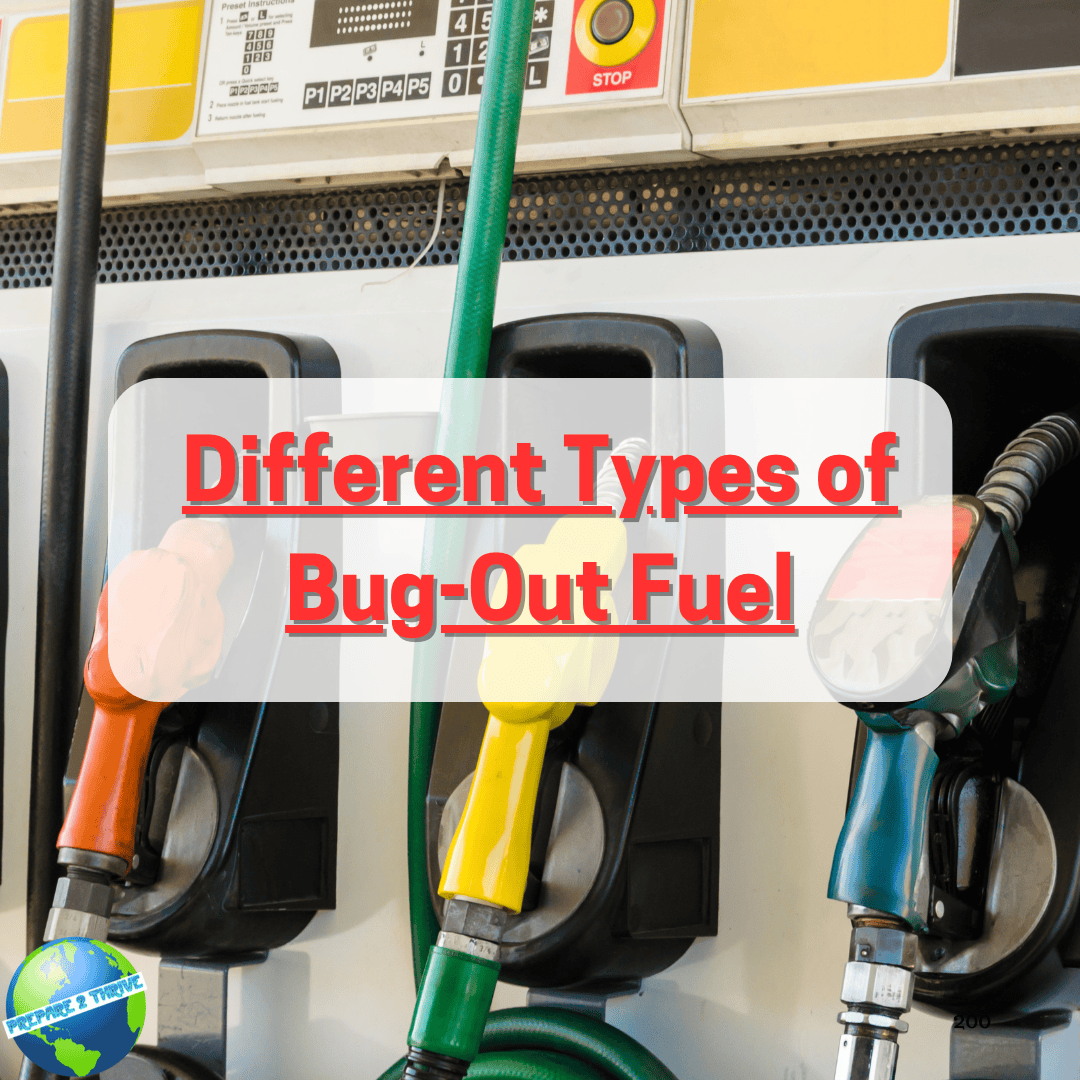As the world faces the unknown of our current crisis, it is important to be prepared for any kind of disaster. A bug-out bag, also known as “72-hour kits”, should contain items that could help you to survive in an emergency situation, such as for natural disasters. One of the most important items you should include in your bug-out bag is fuel for transportation.
Having the right fuel to get you out of a bad situation is key. There are various types of fuel that you can have in your bug-out kit, all of which have their own benefits. In this article, we will discuss the different types of bug-out fuel that you should consider including in your kit.
Gasoline
The first type of bug-out fuel that we will discuss is gasoline. Gasoline stands out as a widely accessible and popular bug-out fuel, given its ubiquity and compatibility with most vehicles. Its prevalence and ease of access make it a primary choice for bug-out bags and emergency situations. The key advantage lies in gasoline's reliability, as most vehicles are designed to run efficiently on this fuel type.
Diesel
Diesel fuel proves to be a strategic choice for bug-out scenarios, offering unique advantages for various emergency situations. Firstly, it can be easily acquired by siphoning from truck fuel tanks, providing a dependable source during crises. Moreover, the option to purchase diesel in bulk for use as heating oil adds versatility to its utility.
One standout feature of diesel is its extended shelf life, surpassing many other fuel types. When stored appropriately, diesel can remain viable for a year or more, ensuring a long-lasting and reliable fuel supply during uncertain times.
The high power-to-weight ratio of diesel is a notable advantage, making it an efficient choice for bug-out situations regardless of the vehicle type. This characteristic enables longer travel distances without sacrificing cargo capacity, a crucial factor for survivalist scenarios.
However, it's essential to acknowledge potential drawbacks. Diesel engines tend to produce more noise and noticeable exhaust emissions, potentially compromising stealth in certain situations. Additionally, diesel fuel can gel in extremely cold temperatures, impacting engine performance. Despite these considerations, when properly managed and stored, diesel emerges as a versatile and reliable fuel option for bug-out scenarios, providing endurance and adaptability in challenging circumstances.
Kerosene
Kerosene is another type of fuel that is commonly used for bug-outs. Kerosene is a more efficient and cleaner-burning fuel than gasoline, so many tents and camp stoves are designed to use it. Additionally, kerosene is easier to store and transport than gasoline, as it is not flammable and has a longer shelf life.
However, one of the major drawbacks to kerosene is that it is not as widely available as gasoline. Additionally, kerosene can produce a lot of smoke and soot, so it is important that you use it in a well-ventilated area.
Propane and Butane
Propane and butane are two other forms of fuel that you can use in your bug-out bag. Propane and butane are both gases that are stored in pressurized cylinders. These gases are primarily used for cooking purposes, but they can also be used for heating and for powering small appliances.
The advantage to using propane and butane is that they are easy to store and transport, and they have a long shelf life. Additionally, these gases are fairly easy to find and can be used to power a variety of different appliances.
Propane and butane have an indefinite shelf life when stored in proper conditions. Unlike gasoline, propane and butane do not degrade over time. However, the longevity of storage is influenced by factors such as temperature, container integrity, and how well it's protected from the elements. Storing in a cool, dry place and ensuring the container is in good condition can help maintain its effectiveness for an extended period.
On the other hand, propane and butane can be dangerous if not handled correctly. Additionally, these fuels are not as efficient as gasoline or kerosene, so you may have to purchase a larger tank to store enough fuel for your needs.
It's important to note that extremely cold temperatures can affect the vaporization of butane, potentially impacting its performance in certain conditions.
Solar Power
Solar power is another form of fuel that can be used in a bug-out bag. Solar power utilizes the energy of the sun to generate electricity and can be used to power a variety of things, from lights to medical devices. Solar power is reliable, renewable, and environmentally friendly.
However, the downside to solar power is that it requires the sun to be out in order to work properly. Additionally, solar panels can be expensive and bulky, making them difficult to transport in a bug-out bag.
Conclusion
Having the right type of fuel in your bug-out supply is essential to ensure you can make it out of an emergency situation safely. Different types of bug-out fuel have their own advantages and disadvantages, so it is important to choose one that will best meet your needs. Gasoline, diesel, kerosene, propane, butane, and solar power are all viable options for bug-out fuel, so be sure to consider your unique circumstances before making a decision.
#BugOutFuel #BugOutBag #Emergency #Gasoline #Kerosene #Propane #Butane #SolarPower



